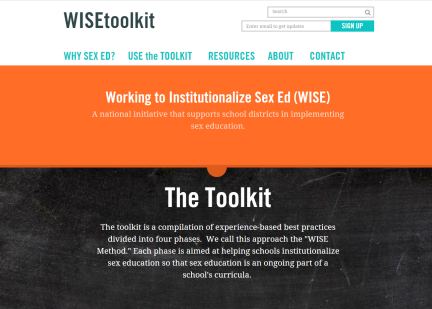Trauma Transformed, the result of seven Bay Area counties’ collective mission to work together to change the way they understand, respond to and heal trauma, was seeded by a four-year federal systems change grant from the Substance Abuse and Mental Health Services Administration (SAMHSA). LFA partnered with Trauma Transformed to tell the story of its first four years. A systems change initiative like Trauma Transformed is inherently slow moving, complex, and difficult to measure. Looking back upon the work of the last four years, there is evidence that meaningful progress is taking place: radical transformation in the capacity of systems to support and sustain efforts and practices that address trauma, by supporting and healing the people within those organizations and systems. Download the Final Report and the Executive Summary.
In designing an implementation evaluation for the Hawaiʻi Community Foundation’s middle school program, Connecting for Success (CFS), LFA looked to ideas from the school reform literature to build out the concept of strategic coherence, a concept that captures a particularly important aspect of implementation (one that our evaluation found to be among the most meaningful factors relating to the program’s success): School reforms are strategically coherent when they are logically consistent with other initiatives or programs, and with existing practices. When reforms cohere, the various policies and practices build on, complement, and reinforce one another; without coherence, the various policies and practices contradict one another and contribute to the fractured time and attention of school staff. Separate efforts may be based on conflicting strategies, and contradictory demands may be made of staff.
For those in the field who might want to explore the concept of strategic coherence as a critical aspect of high-quality program implementation, we offer a rubric that outlines the three dimensions of strategic coherence as well as a tool that includes items to measure these dimensions. Download the Rubric and Tool. Learn more about strategic coherence in our blog post here.
HIKI NŌ (the Hawaiian phrase for “Can Do”) is a PBS Hawai'i Learning Initiative that mentors middle and high school students throughout the state of Hawai'i as they learn about all aspects of broadcast journalism and create PBS-quality video stories about themselves and their communities. Under their teachers’ guidance, students from 90 public, private, and charter schools from across the Hawaiian Islands learn critical 21st century skills and share stories from their communities to Hawai'i and the world. PBS Hawaii engaged Learning for Action to conduct an evaluation to explore HIKI NŌ's impact on teacher instructional practice and activities, specifically looking at the extent to which the program helps teachers to meet Common Core requirements and helps students to build 21st Century skills. Findings from the evaluation highlight that HIKI NŌ is a unique program offering valuable opportunities for teacher professional development and student skill development which extend beyond the HIKI NŌ classroom.Download the Final Report.
LFA and the Center for Venture Philanthropy developed this benchmarking tool to help organizational leaders and staff assess and reflect on their practices relative to standards of excellence in environmental education. Download the Tool
The Working to Institutionalize Sex Ed (WISE) Initiative provides much needed support to institutionalize sex education in public schools across 12 key states. As the national evaluator for the WISE Initiative, LFA has provided ongoing guidance to a multi-funder collaborative led by the Grove Foundation and supported by the Ford Foundation, David and Lucile Packard Foundation, the Oak Hill Fund, and additional funders. One product of the evaluation is the creation of the WISE Toolkit, an iterative, dynamic approach to implementing sex education. The WISE Toolkit emerged from the experience of the organizations participating in WISE and was captured, analyzed, and written by LFA. See the Online Toolkit
In LFA’s work with First 5 Sonoma County and the Sonoma County Upstream Investments Policy Initiative, we developed a fidelity diagnostic tool that is designed to assess both fidelity of and adaptations to implementation. The tool enables staff to assess the extent to which a program is being implemented according to the model’s specifications (adherence, dosage, quality, and responsiveness). To measure fidelity using the diagnostic tool involves a three-step process: (1) Calculate a “fidelity score,” (2) Assess acceptability of program model adaptations, and (3) Consider what actions need to be taken to address implementation issues. Download the Tool.






